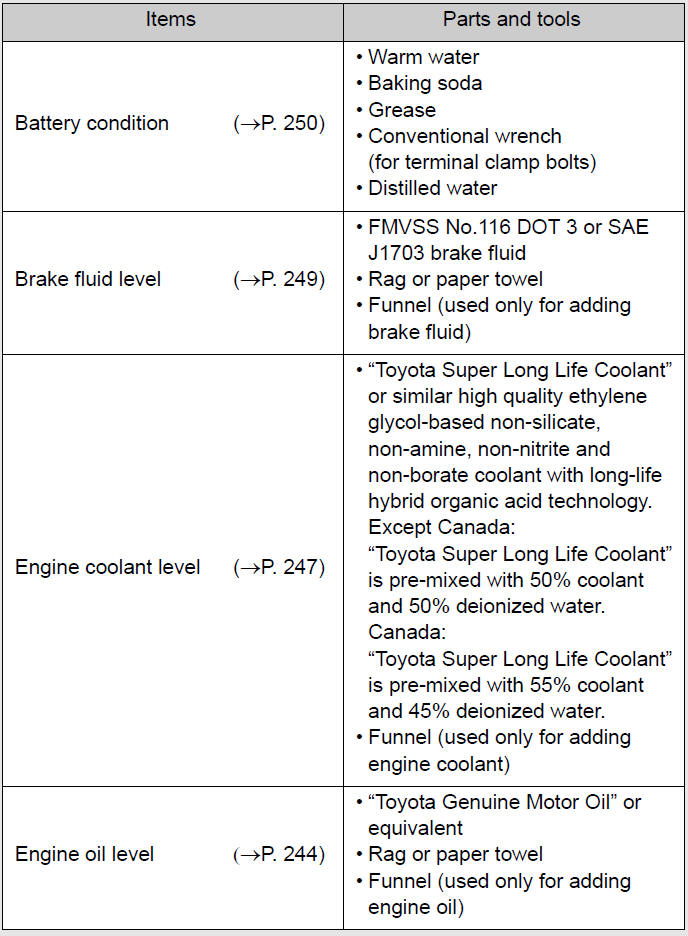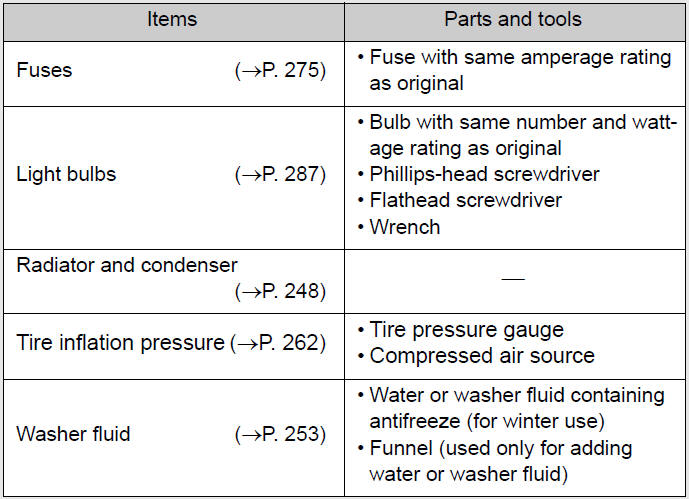 Toyota Yaris: Do-it-yourself service precautions
Toyota Yaris: Do-it-yourself service precautions
If you perform maintenance by yourself, be sure to follow the correct procedures as given in these sections.


CAUTION
The engine compartment contains many mechanisms and fluids that may move suddenly, become hot, or become electrically energized. To avoid death or serious injury, observe the following precautions:
■When working on the engine compartment:
●Keep hands, clothing and tools away from the moving fan and engine drive belt.
●Be careful not to touch the engine, radiator, exhaust manifold, etc. right after
driving as they may be hot. Oil and other fluids may also be hot.
●Do not leave anything that may burn easily, such as paper and rags, in the engine
compartment.
●Do not smoke, cause sparks or expose an open flame to fuel or the battery. Fuel
and battery fumes are flammable.
●Be extremely cautious when working on the battery. It contains poisonous and corrosive
sulfuric acid.
CAUTION
■When working near the electric cooling fan or radiator grille
Be sure the engine switch is off. With the engine switch on, the electric cooling fan may automatically start to run if the air conditioning is on and/or the coolant temperature is high. (→P. 248)
■Safety glasses
Wear safety glasses to prevent flying or falling material, fluid spray, etc. from getting in your eyes.
NOTICE
■If you remove the air cleaner filter
Driving with the air cleaner filter removed may cause excessive engine wear due to dirt in the air.
 Hood
Hood
Release the lock from the inside of the vehicle to open the hood.
Pull the hood lock release lever.
The hood will pop up slightly.
Pull up the auxiliary catch lever and lift the hood.
Hold t ...
See also:
Odometer and two trip meters
With tachometer
Without tachometer
This meter displays the odometer and two trip meters.
1. Odometer—Shows the total distance the vehicle has been driven.
2. Two trip meters—Shows tw ...
SRS driver and front passenger airbags
The SRS (Supplemental Restraint System) airbags are designed to provide further
protection for the driver and front passenger in addition to the primary safety
protection provided by the seat be ...
Manual transmission
The shift pattern is conventional as shown above.
Press the clutch pedal down fully while shifting, and then release it slowly.
Do not rest your foot on the pedal while driving, because it will ...

